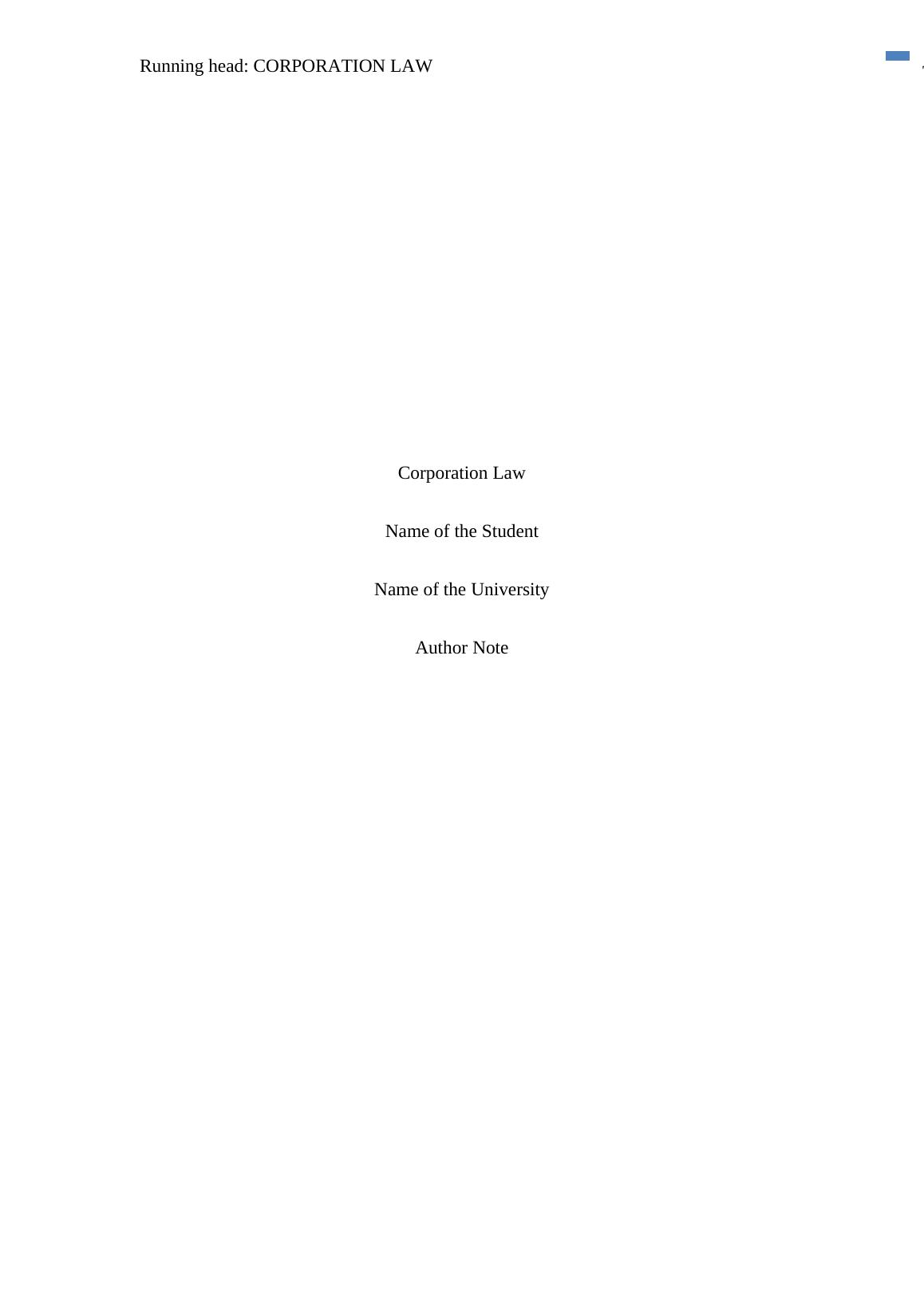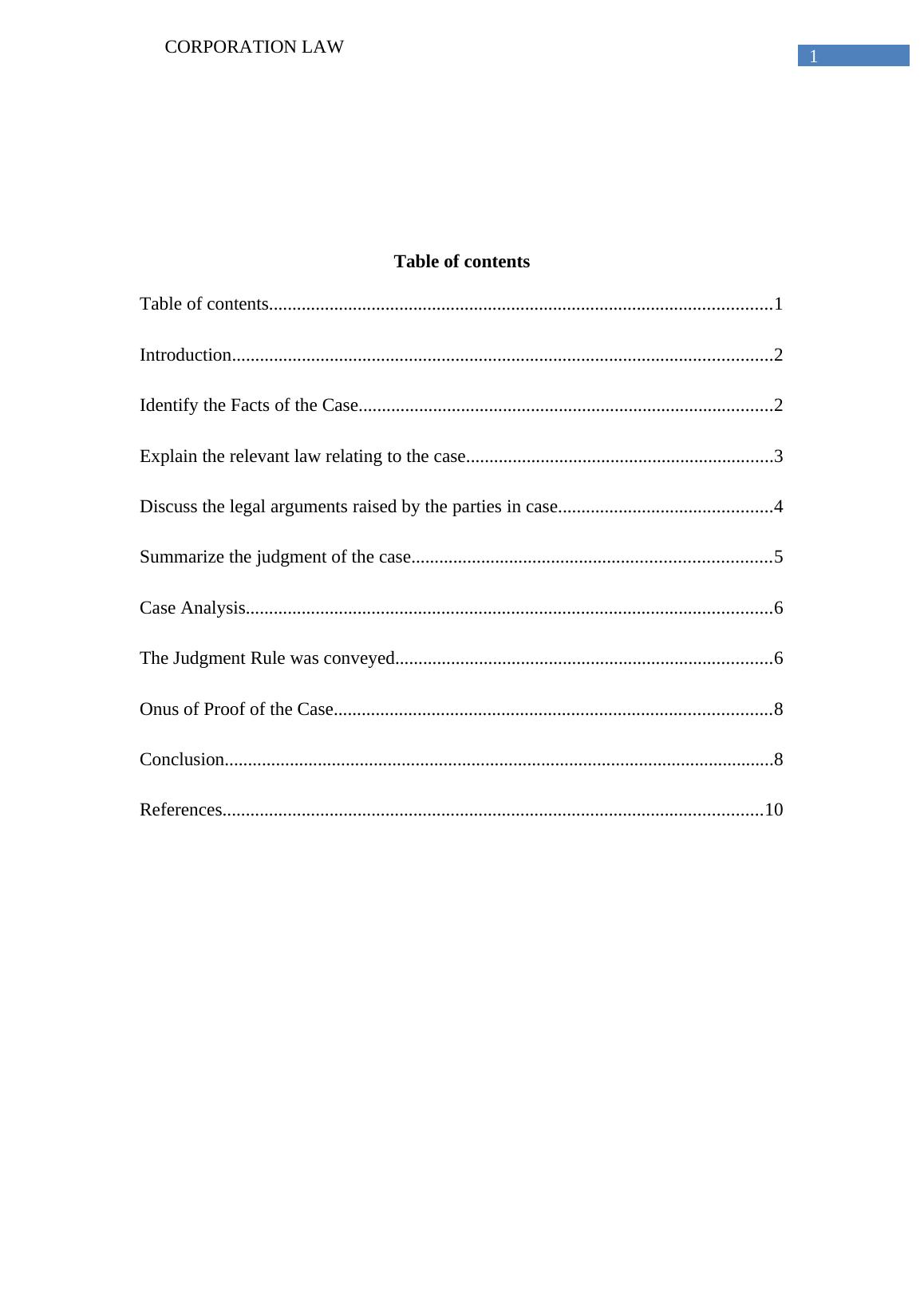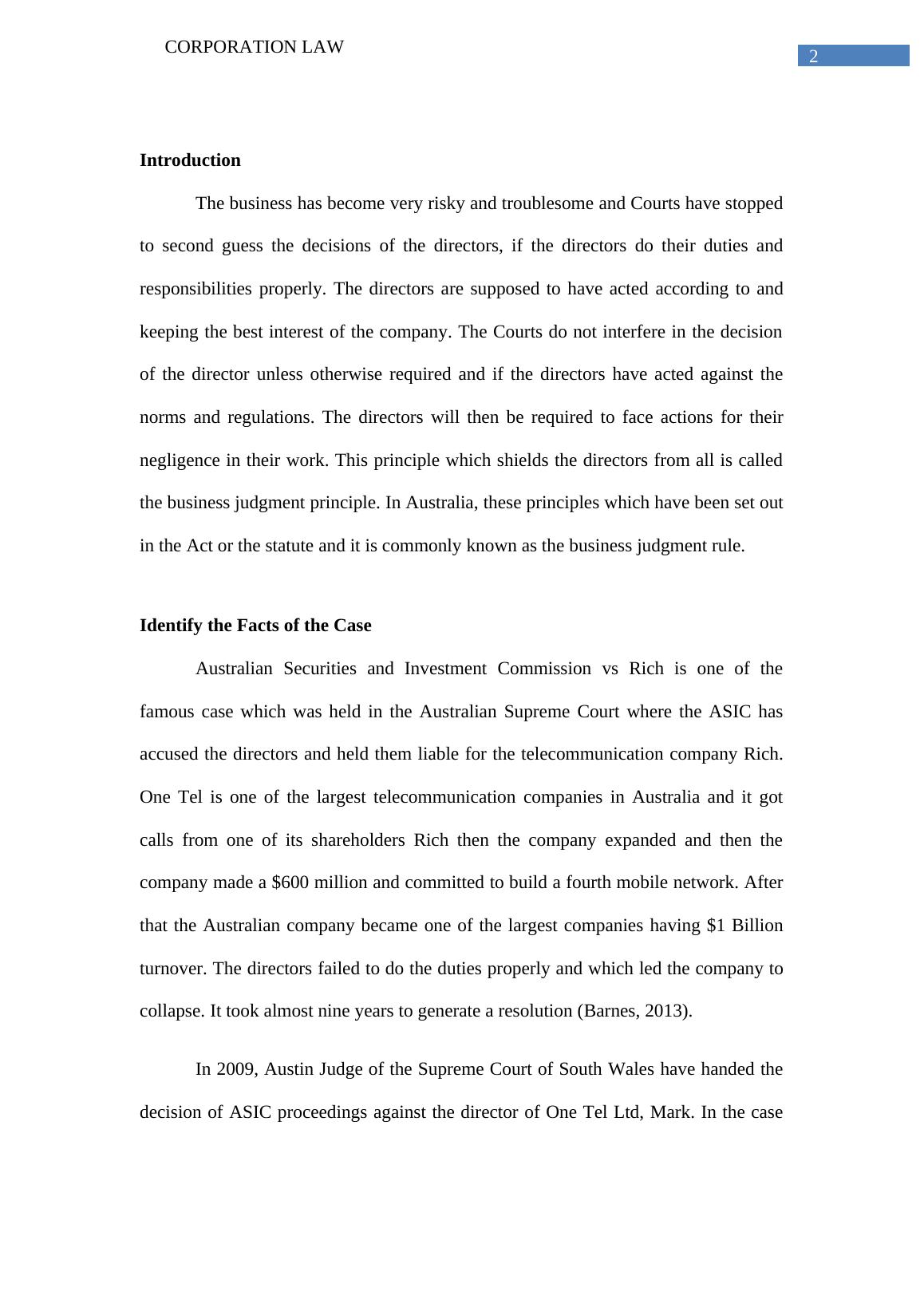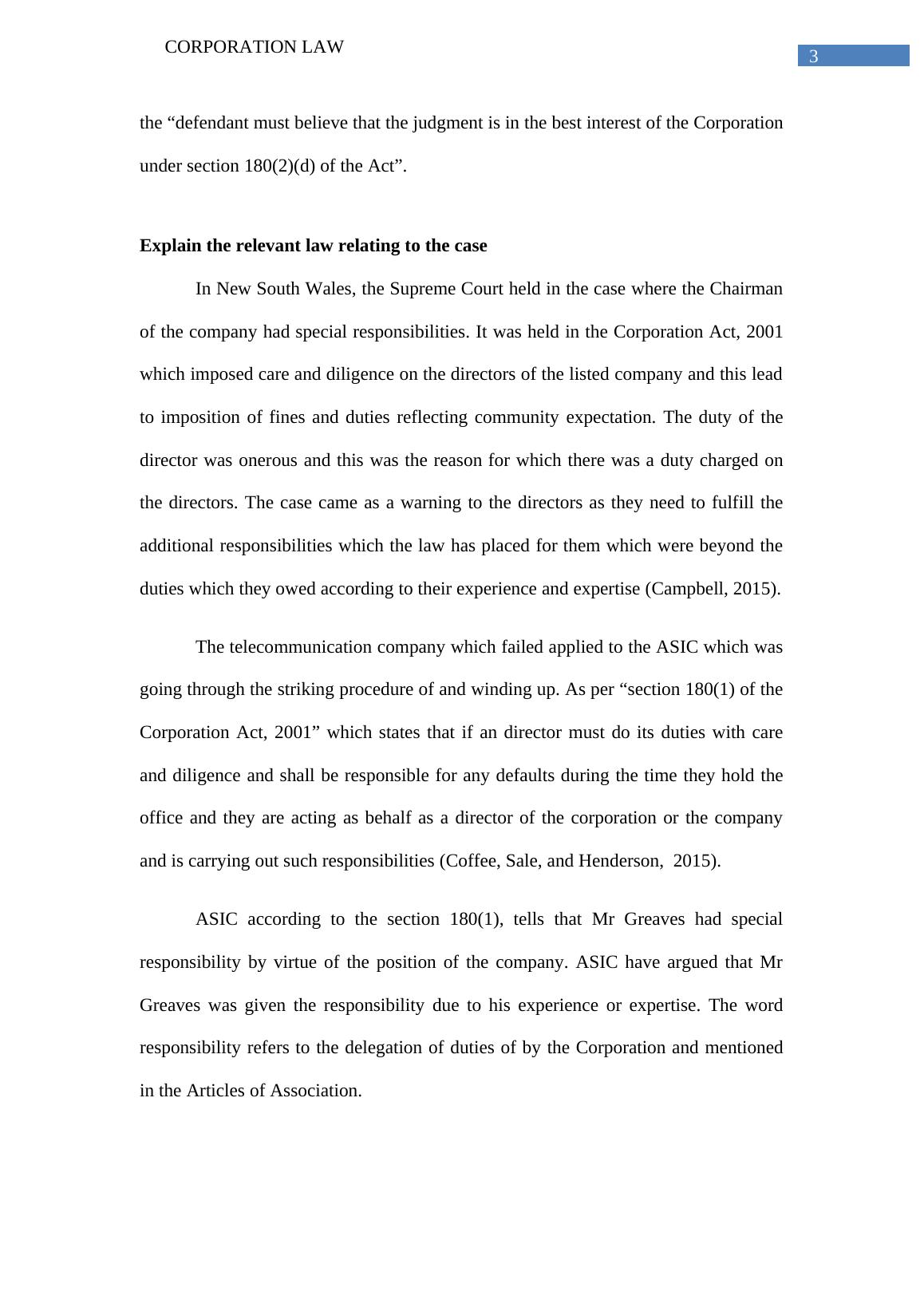Ask a question from expert
Corporation Law - Legal Arguments | Case Study
12 Pages2788 Words258 Views
Added on 2019-11-19
Corporation Law - Legal Arguments | Case Study
Added on 2019-11-19
BookmarkShareRelated Documents
Table ofRunning head: CORPORATION LAWCorporation LawName of the StudentName of the UniversityAuthor Note

1CORPORATION LAWTable of contentsTable of contents............................................................................................................1Introduction....................................................................................................................2Identify the Facts of the Case.........................................................................................2Explain the relevant law relating to the case..................................................................3Discuss the legal arguments raised by the parties in case..............................................4Summarize the judgment of the case.............................................................................5Case Analysis.................................................................................................................6The Judgment Rule was conveyed.................................................................................6Onus of Proof of the Case..............................................................................................8Conclusion......................................................................................................................8References....................................................................................................................10

2CORPORATION LAWIntroductionThe business has become very risky and troublesome and Courts have stoppedto second guess the decisions of the directors, if the directors do their duties andresponsibilities properly. The directors are supposed to have acted according to andkeeping the best interest of the company. The Courts do not interfere in the decisionof the director unless otherwise required and if the directors have acted against thenorms and regulations. The directors will then be required to face actions for theirnegligence in their work. This principle which shields the directors from all is calledthe business judgment principle. In Australia, these principles which have been set outin the Act or the statute and it is commonly known as the business judgment rule.Identify the Facts of the CaseAustralian Securities and Investment Commission vs Rich is one of thefamous case which was held in the Australian Supreme Court where the ASIC hasaccused the directors and held them liable for the telecommunication company Rich.One Tel is one of the largest telecommunication companies in Australia and it gotcalls from one of its shareholders Rich then the company expanded and then thecompany made a $600 million and committed to build a fourth mobile network. Afterthat the Australian company became one of the largest companies having $1 Billionturnover. The directors failed to do the duties properly and which led the company tocollapse. It took almost nine years to generate a resolution (Barnes, 2013).In 2009, Austin Judge of the Supreme Court of South Wales have handed thedecision of ASIC proceedings against the director of One Tel Ltd, Mark. In the case

3CORPORATION LAWthe “defendant must believe that the judgment is in the best interest of the Corporationunder section 180(2)(d) of the Act”.Explain the relevant law relating to the caseIn New South Wales, the Supreme Court held in the case where the Chairmanof the company had special responsibilities. It was held in the Corporation Act, 2001which imposed care and diligence on the directors of the listed company and this leadto imposition of fines and duties reflecting community expectation. The duty of thedirector was onerous and this was the reason for which there was a duty charged onthe directors. The case came as a warning to the directors as they need to fulfill theadditional responsibilities which the law has placed for them which were beyond theduties which they owed according to their experience and expertise (Campbell, 2015).The telecommunication company which failed applied to the ASIC which wasgoing through the striking procedure of and winding up. As per “section 180(1) of theCorporation Act, 2001” which states that if an director must do its duties with careand diligence and shall be responsible for any defaults during the time they hold theoffice and they are acting as behalf as a director of the corporation or the companyand is carrying out such responsibilities (Coffee, Sale, and Henderson, 2015).ASIC according to the section 180(1), tells that Mr Greaves had specialresponsibility by virtue of the position of the company. ASIC have argued that MrGreaves was given the responsibility due to his experience or expertise. The wordresponsibility refers to the delegation of duties of by the Corporation and mentionedin the Articles of Association.

End of preview
Want to access all the pages? Upload your documents or become a member.
Related Documents
Breach of Director Duties: A Case Study on Lilian and Gumptalg...
|9
|2068
|347
ASIC or ASX defences against the directors of the company, Trump Developments Ltdlg...
|5
|736
|252
Business and Corporations Law Assignmentlg...
|11
|2685
|99
ASIC v Rich: Establishing the Principle of Business Judgment Rulelg...
|9
|2165
|83
ASIC v Whitlam: Breach of Director Duties in Australialg...
|10
|2561
|447
Corporations Law : Assignmentlg...
|10
|2633
|108